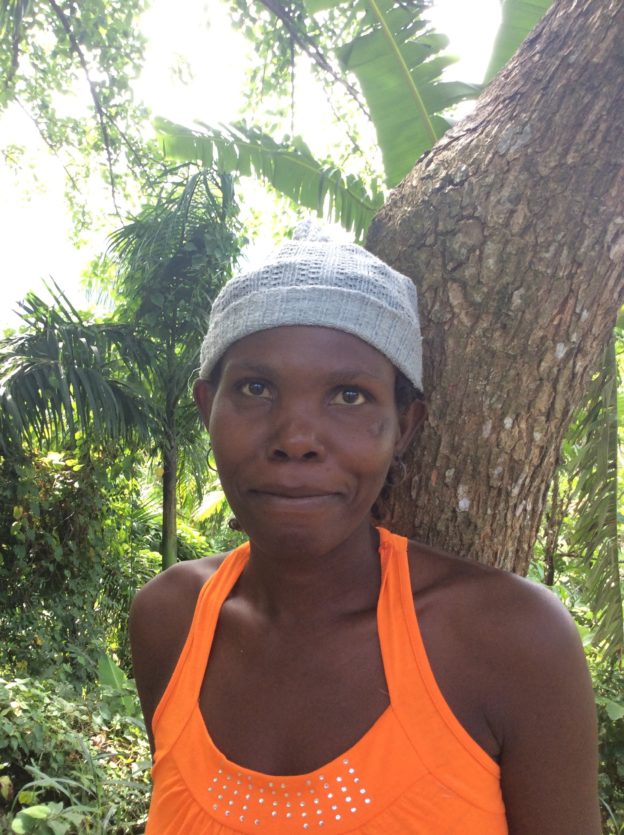Solène has been working hard since we last spoke with her. She and her husband have been collecting the materials they will need to build a new home. They’ve been living in a house that belongs to her mother-in-law, and are anxious to move into one of their own.
She explains their activity with a Haitian proverb: “Se pa lè w gen domi nan jè w, ou ranje kabann.” That means that you don’t wait until you’re sleepy to make your bad. It’s one of the proverbs that the members from Kolonbyè discussed with their case managers and with one another at the three-day workshop they attended a few weeks ago, and Solène picked right up on the sentiment.
They are still struggling. Hurricane Matthew destroyed a field of beans that she and her husband had planted. They managed to plant 15 mamit, or coffee cans, and won’t see any harvest to speak of. What’s worse is that they bought eight of the cans on credit, promising to repay them in beans with 100% interest, and they still owe 16 cans of beans even though their farming failed.
She’s happy that she now has a latrine and some goats, but their lives haven’t improved very much. She has two children who should be in school, and she can’t send them yet. “I bought their uniforms and the books and other supplies they need, but a don’t have the school fee.” The fee this year is 1000 gourds per child, or about $30, for both for the year. The school’s principal won’t let anyone send a child unless they can pay at least half up front, and Solène doesn’t have 1000 gourds yet.
And it is still hard to feed her children every day. “Yo sou kont ou, fò w fè.” That means, “They depend on you, so you have to do something.” She says that the stipend helps, but that her husband continues to work in their neighbors’ fields for 50 gourds, or less than $1, a day.
